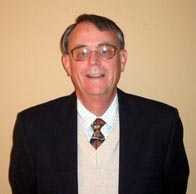Courses
U.S. History
This workshop provides teachers with the tools they need to implement an effective AP United States History course. During this training, teachers will explore the historical thinking skills and the components of the curriculum framework, including the periods, concept outline, and thematic learning objectives. Participants will understand how to use activities that organize the concepts and essential questions to develop students’ proficiencies in the skills identified by the curriculum framework. In addition, participants will work on a course plan that will help them decide how they will teach the skills and content of the AP United States History course.
The following topics will be addressed in the US AP Summer Institute:
• Current College Board Policies regarding the
new US AP Curriculum Framework
• A review of the new US AP Exam
scoring rubrics for 2015
• A review of the course audit process
•
An analysis of the results of the 2015 US AP exam
• The College Board
philosophy of access and equity
• Strategies that promote a
diversified and inclusive AP classroom
• Strategies to develop skills
for success on the short answer section of the exam
• Strategies to
develop skills for success on the multiple choice section of the exam
• The critical thinking and reading skills necessary for success on the
US AP exam
• Strategies to develop skills for success on Long Essay
and DBQ sections on the US AP exam
• The importance of embedding
these skills in instruction
• Instructional strategies and activities
that promote critical thinking and reading skills
• Lessons,
strategies, and activities that promote learning among students with
diverse needs
• Multiple approaches to exam content through
practicing activities, lessons and strategies
• Ideas for expanding
participants repertoire of classroom activities and strategies
• A
variety of review strategies that reinforce the course and ensure
success on the exam
• A variety of Web-based resources
• Sharing
of “Best Practices” by the participants
• The range of Pre-AP
professional development workshops
• A variety of non-College Board
resources that are discipline-specific
• Professional organizations
that can aid the AP teacher
• A review of the most useful tools of
the day
• The importance of commitment to access and equity
Learning Outcomes:
After attending the summer institute, the participants will be able to have a clear understanding of the implementation of the US AP Curriculum Framework, an understanding of the scoring rubrics on the new exam and have the information necessary to offer a successful US AP course in their schools.
Participants are asked to bring a sample U.S. AP lesson to share with other U.S. AP teachers at the session.
AGENDA
Tuesday
Understanding the Course:- Lesson 1: Historical Thinking Skills and the AP U.S. History course
- Lesson 2: Developing Student Understanding
- Lesson 3: Understanding the Structure of the Curriculum Framework
- Lesson 4: Understanding the Learning Objectives
- Lesson 5: Understanding the Big Ideas
- Lesson 4: Planning Your Course
Wednesday
Historical Thinking Skills:- Lesson 5: Analyzing Historical Sources and Evidence: Primary Sources/Content and Sourcing
- Lesson 6: Analyzing Historical Sources and Evidence: Secondary Sources/Interpretation
- Lesson 7: Making Connections
Thursday
Historical Thinking Skills (cont.):- Lesson 8: Chronological Reasoning
- Lesson 9: Creating and Supporting a Historical Argument
- Lesson 10: Sequencing the AP U.S. History Course
- Lesson 11: Selecting Resources to Support Teaching AP U.S. History
Friday
Teaching the AP U.S. History Course (cont.):- Lesson 12: Strategies for Teaching AP U.S. History
- Lesson 13: Unit Development
- Lesson 14: Assessing Student Understanding
- Lesson 15: Curricular Requirements and Syllabus Development
Learning Goals
Teachers will be able to...- Explain how the historical thinking skills tie the course together.
- Explain how the parts of the curriculum framework fit together and complement one another.
- Explain the scope of the course.
- Explain the themes of AP U.S. History and describe how the thematic learning objectives define what students should know and be able to do by the end of the AP U.S. History course.
- Explain how student understanding will be assessed on the exam.
- Explain the rubrics for the free-response questions and applying them to students’ responses.
- Describe the Instructional Planning Report and evaluate the information in order to improve instruction.
- Explain and apply the historical thinking skills.
- Utilize effective instructional strategies to develop historical thinking skills and content knowledge.
- Apply their knowledge of content and pedagogy to build a unit of instruction.
- Align instruction and assessment, as well as instruction and the learning objectives.
- Assess student understanding and provide effective feedback.
- Implement the curricular requirements and include them in their syllabi.
- Select resources to illustrate concepts and use them in their classroom.
- Explain how students demonstrate understanding.
- Sequence their courses to scaffold concepts and historical thinking skills.
- Explain the value of including all students in AP.
- Describe the equity and access policy and how they can implement it in their classrooms.
- Identify the supports available to teach the AP U.S. History course.

“I could not imagine doing AP teaching without this training.”
–Past Client
Instructor:
Edmund Austin
Ed was the US AP teacher, Department Chair and Social Studies Lead Teacher at William Tennent High School in Bucks County Pennsylvania. He has presented Pre AP and AP workshops and summer institutes for the College Board Advanced Placement program in Delaware, Maryland, New York, Pennsylvania, Florida and the U.S. Virgin Islands. Ed has been a reader for the US AP exam since 1994 and is presently a certified consultant and national leader for the College Board. Recently Ed attended a number of training sessions sponsored by the College Board focused on the new US AP Curriculum Framework.